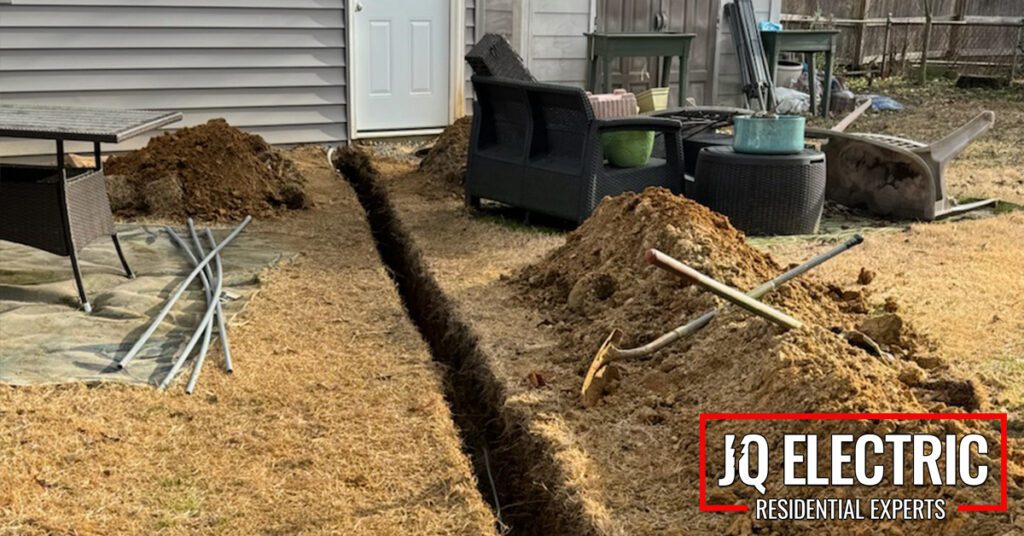
Imagine the convenience of having electricity in another building on your property, enhancing your backyard this summer. Many homes have an outdoor outlet or two that can run extension cords out to an existing structure, but that isn’t the most convenient long-term solution. However, adding underground electric wires can solve the extension cord power supply problem, making your life easier!
Where To Add Electricity On My Property
Think about the potential of other structures on your property having their own electricity. You may have a workshed for projects not attached to your home. Or perhaps you’re considering an increasingly popular “she shed,” podcasting studio, man cave, detached garage, outdoor office, guesthouse, or golf simulator? All of these could be powered up, opening up a world of possibilities beyond just some extension cords.
Direct Burial Cable
Direct burial cable or underground feed does what their name implies. Underground cables run below the surface to connect your main power supply to a sub-feed elsewhere on your property. The intention behind these cables is to be underground, eliminating the need for additional materials, such as covering, conduits, or sheathing.
Individual wires are embedded in vinyl to protect them from dirt, dust, water, and moisture. They are flexible and easily dropped into a ditch from your home to another structure, so long as they are buried deep enough. Although these cables can run inside a conduit, depending on building codes, this could be completely unnecessary.
Underground Electrical Conduits
Another underground electric option is an electrical conduit, a tube that houses electrical wires and protects them from moisture, impact, chemical vapors, and animals. Common material options for electrical conduits include PVC, metal, or fiberglass. Using the best conduit pipe for your specific project is essential. Different electrical conduits have different properties, making some more suitable for specific underground environments than others.
PVC Conduits
PVC conduits are lightweight and the least expensive electrical conduits. They are also non-conductive, so they protect well against electric shock. However, they cannot withstand temperatures below 20 degrees Fahrenheit or above 140 degrees Fahrenheit.
Metal Conduits
Metal conduits, made from coated steel, stainless steel, or aluminum, are thick and heavy. While they provide excellent protection in harsh environments, their weight and material make them expensive and difficult to install.
Fiberglass Conduits
Fiberglass conduits are becoming increasingly popular due to their lightweight, cost-effective, and element-resistant properties. Since fiberglass is non-metallic, it will protect from electric shock and never corrode.
Underground Electric Installation
Choosing the proper electrical conduits or direct burial cables for your project is crucial. Conduits must be able to withstand the area’s environmental conditions. The depth, route, and installation specifications are also vital to the project’s safety, regardless of your chosen option.
We always recommend consulting with one of our qualified electricians for proper installation and compliance in your area. And who better than JQ, your trusted neighborhood electrician? We can guide you through the appropriate material, placement, and safety to produce the best possible experience lighting additional structures. Give us a call today to discuss your options for electrical underground wiring!
